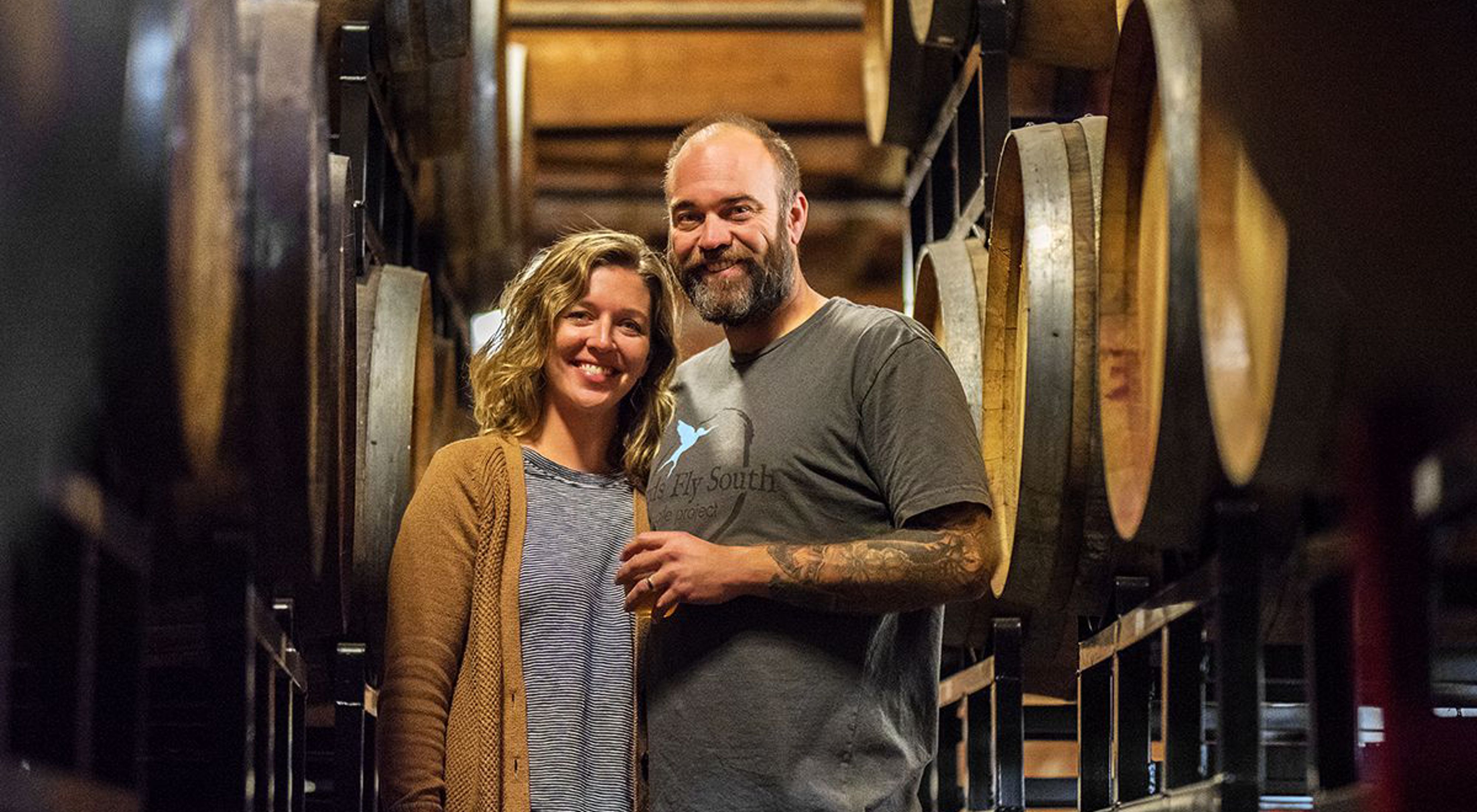OktoberForest: Birds Fly South
Celebrating healthy forests, clean water and beer!
nature.org:
Where does Birds Fly South get the water you use to make your beer, and how much do you use?
Lindsay:
We use city water, which in Greenville comes from the Table Rock and North Saluda watersheds and Lake Keowee. We’re lucky to start our brews with some of the cleanest, best-tasting water in the nation.
Shawn:
We do start with good water, and we try to conserve as much of it as possible. The industry average is that it takes between eight and 10 gallons of water to make one gallon of beer. Four gallons go into the actual brewing process, and the rest is used to cool the beer from boiling temperature to a yeast-friendly temperature. At Birds Fly South, our average is about 7.5 gallons of water per gallon of beer, and that’s a conscious effort on our part. It’s still a lot of water, though – we produce nearly 1,200 gallons of beer each month.
Water conservation is just part of who we are. We also recycle more than we waste, and we’re proud of that. We recycle 500 kegs, 300 lbs. of plastic and 400 lbs. of cardboard every month, versus about only eight bags of trash. (nature.org: Wow!) We’re working to move toward aluminum bottles next, since glass recycling is no longer available in our area.
nature.org:
How important is the taste of your water to the taste of your beer?
Lindsay:
Beer is mostly made of water, so that flavor can have a big impact. We specialize in Farmhouse Saisons and sours, both of which are very complex beers. You want to be able to taste the fruit, the yeast tones and the tartness. For that, you need to start with a clean slate.
Shawn:
You do need that clean slate. Greenville has wonderful water supply and water source that allows us to bring out the flavors and nuances in our beer. It’s one of the reasons we’re blessed and honored to be brewing here. In other parts of the country, many breweries use a massive reverse osmosis filtration process just to make their water softer. We don’t do that. We use only a charcoal filter to remove added chlorine. Those additions are what turn into sulfates and cause hangovers – no one wants that!
nature.org:
You’re partnering with us for OktoberForest to raise awareness about the connection between healthy forests and clean water. Why else should people care about forests?
Shawn:
We love to hike as a family, and there are so many good places nearby. We especially like DuPont forest because there’s no cell phone coverage. We can just disappear with our kids. Everyone says they want to unplug, and it’s nice to able to drive an hour away and do just that.
Lindsay:
Agreed. Running a brewery and juggling school schedules for three boys can get hectic. I find I really need that quiet and that release of being out in nature for a few minutes each day.
nature.org:
Speaking of nature, we love the name of your brewery! What’s the story behind “birds fly south”?
Lindsay:
It’s a family joke, actually. Shawn and I called our three boys our “little birds” growing up, and we moved around a lot because Shawn was in the Coast Guard. I always wanted to move us further south, closer to my home state of Florida. Eventually, I got my wish – we and our birds flew to South Carolina!
